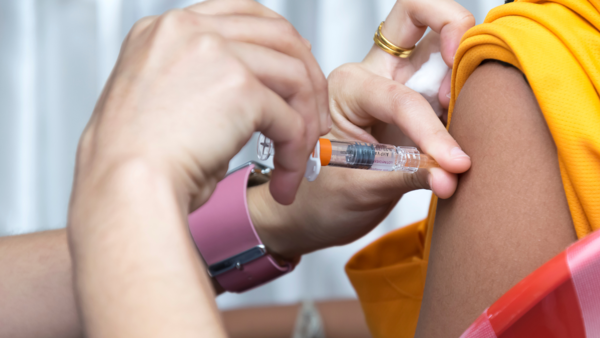Union Minister of State for Health, Family Welfare, and Ayush Prataprao Jadhav announced on Tuesday that a vaccine targeting breast, oral, and cervical cancers in women will be available in the Indian market within five to six months. Speaking at a press conference in Chhatrapati Sambhajinagar, he revealed that girls aged nine to 16 years will be eligible for the vaccination once it becomes available.
The minister shared that research on the vaccine is in its final stages, with trials currently underway. This development comes as part of the government’s broader initiative to address the rising number of cancer cases in the country.
“A vaccine to fight cancers affecting women will be available in five to six months, and those in the age group of nine to 16 years will be eligible for inoculation,” Jadhav stated.
The government has implemented several measures to combat cancer, including mandatory screening for women over 30 at hospitals. Additionally, daycare cancer centers will be established to facilitate early detection of the disease.
“The number of cancer patients has increased in the country, and the Central Government has initiated steps to address this issue. Women above 30 will undergo screening at hospitals, and daycare cancer centers will be established for early detection of the disease,” Jadhav explained.
“The research on a vaccine for cancers that affect women is nearly complete, and trials are underway. It will be available in five to six months, and girls in the age group of nine to 16 years will be eligible for inoculation,” the minister added.
In the meantime, Russia revealed in December 2024 that it had developed a vaccine based on mRNA that would be used to treat cancer patients, marking a revolutionary advancement in cancer treatment. According to state-run media, Russian citizens will receive the ground-breaking vaccination for free when it launches in early 2025.

The state will pay about 300,000 rubles (USD 2,869) each dose for the customized vaccination, which includes genetic material from a patient’s tumor. Andrey Kaprin, the head of the Ministry of Health’s Radiology Medical Research Centre, made the statement. “The goal of this vaccine is to treat cancer patients, not to stop tumors from growing,” Kaprin said.
The vaccine trains the immune system to recognize and combat cancer cells by using parts of the patient’s tumor. It aids the body in identifying distinct proteins on the surface of cancer cells called antigens. These antigens successfully target and eliminate cancer cells by inducing the production of antibodies by the immune system.
The complex procedure used to create the vaccine was described by the Gamaleya National Research Centre for Epidemiology and Microbiology. “Building [personalised vaccinations] now takes a long time since, mathematically speaking, computing with a vaccine or customised mRNA should resemble matrix approaches. In an interview with TASS, Alexander Gintsburg revealed, “We have enlisted the Ivannikov Institute, which will use artificial intelligence (AI) to perform this math, specifically neural network computing. These procedures should take roughly 30 to 60 minutes.”
As part of the government’s efforts to make cancer treatment more accessible, customs duty has been waived off for cancer medications in India.
Regarding healthcare facilities, Jadhav addressed questions about transforming existing centers into Ayush facilities. He confirmed that hospitals currently maintain Ayush departments where people can access these services. The country presently has 12,500 health facilities, and the government is working on increasing this number to improve healthcare accessibility.

